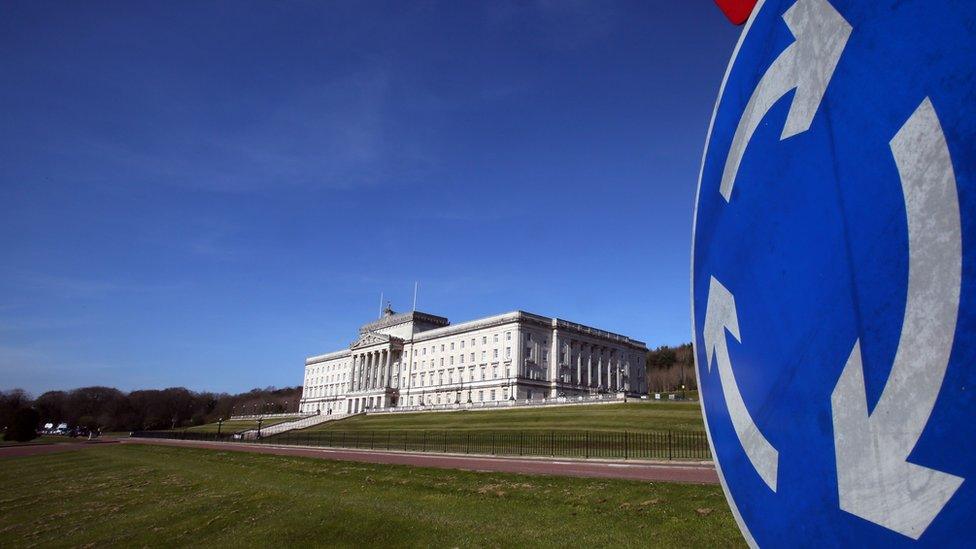How would general election impact NI finances?
- Published

The executive failed to agree a budget for 2017-18, so civil servants have been using emergency financial powers since the start of the financial year
Northern Ireland has two pressing financial issues on which the Secretary of State could act before parliament is dissolved in early May.
The first concerns rates - the locally collected property tax paid by businesses and households.
The political crisis means the NI Executive has not set its part of the bill, known as the regional rate.
James Brokenshire had promised to bring forward legislation to enable a regional rate to be set if there was no political deal by 18 April.
That legislation could be passed as early as this week.
The bigger issue is the Northern Ireland budget.
The executive failed to agree a budget for 2017-18 and so civil servants have been using emergency financial powers since the start of the financial year.
However, officials believe that state of affairs is only sustainable for a few months at most.
That has led to speculation that Mr Brokenshire could use the House of Commons to pass a Northern Ireland budget.
Welfare reform is being cited as a precedent where Westminster legislated for Northern Ireland despite welfare being a devolved power.
If Mr Brokenshire is to take that step he will have to move quickly.
- Published18 April 2017
- Published18 April 2017
- Published18 April 2017
- Published17 April 2017